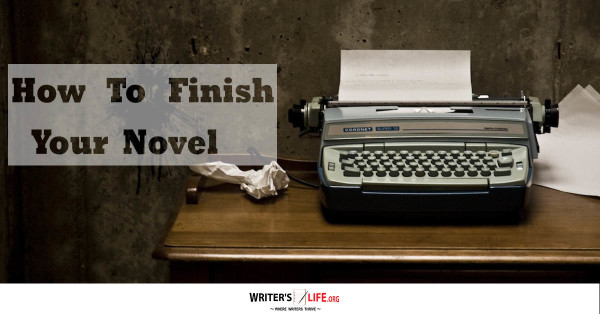- How To Tackle Jealousy In Creative Writing
- Common Submission Mistakes
- How To Stop Your Blog Becoming Boring
- The One Thing Every Successful Writer Has In Common
- How To Make Yourself Aware Of Publishing Scams
- Why Almost ALL Writers Make These Grammar Mistakes At Some Point
- 5 Tips For Authors On How To Deal With Rejection
- Top Mistakes to Avoid When Writing a Novel
- How to Avoid Common New Writer Mistakes
- 10 Mistakes New Fiction Writers Make
How To Finish Your Novel

Writing a novel is a time consuming, laborious process that takes passion, creativity, energy and hard work. It’s real blood, sweat and tears stuff that can see us waking in the night in a cold sweat, muttering to ourselves out loud, and pacing up and down for hours on end. However, if you stick to it, and just keep going, it can be one of the most rewarding achievements of our lives.
The truth is, that as a novelist, you have to be self-disciplined and clever. You need to understand and apply strategies to your writing to keep driving yourself forward, to keep the story engaging, to keep the characters interesting, and most importantly, to keep your readers reading. When you get to the toughest part, the ending, you need to make sure you have the enthusiasm and energy to make it work.
So how does one complete a novel? Here are some top tips to make sure you cross the finish line.
Just keep writing
It may sound obvious, but sometimes you really have to force yourself to write, and that’s OK. We’ve all heard of those writers who claim to wake up in the middle of the night with that uncontrollable urge to grab their pen and furiously write down the story that is simply burning within them. However the reality for most of us is that it takes effort. The best way to finish your novel is to just write it. Don’t stop. Don’t spend hours pouring over one sentence, don’t try to make every action, and interaction between characters perfectly full of energy and emotion, don't pay attention to spelling and grammar. Just write it, finish it, and only then go back. Once you have got to the end of your book you will have a much better idea of what is needed at the start and the middle, to make it work. If you can write without criticising yourself at every turn, you’ll be amazed at how quickly you can get your first draft done.
Take a break
Once you have finished your first draft, set it aside and leave it for a while. Writing it will have been an intense experience, you need to let the dust settle before you can look at it objectively again. If you don’t give your novel space you could end up destroying it before you have even given it a chance. During this period you can still think about it, you can make notes, jot down scenes that you want to add, or anything that inspires you to write more, or change a storyline. Just don’t look at your manuscript. Wait for a few weeks and then you will be ready to sit down and come back to it with fresh eyes.
Tear down and rebuild
When you go back to look at the first draft of your novel, there are going to be many parts of it that you can’t quite believe you have written. It is fine to be appalled at the glaring plot holes, the appalling sentence construction, the weak dialogue. Finishing a novel requires drafting and re-drafting, fiddling, moving and changing. Your readers aren’t stupid, they will notice if a storyline, chapter, or even a paragraph of your novel doesn’t have relevance to the plot, or doesn’t help to advance or enhance the story in some way. Re-read your manuscript with this in mind, and when you find parts of it that don’t, these are the parts you must reconsider.
Identify the weak spots
Is there a part in your novel where you start to get bored? Do you find yourself skimming over any sections of it? If so these are your first culprits to look at. Make sure each chapter starts in an exciting way, and ends so that the reader is hooked and can’t wait to get onto the next. Go through them one by one and think carefully about how you use your language to ensure this happens. Remember readers like to feel an emotional response to a story. This doesn’t mean you have to give them everything they want each time, but it does mean you need to constantly keep them engaged and emotionally involved.
Know when enough is enough
Novels often have been revised over and over again before the author is finally ready to say ‘it’s finished,’ and in our experience even then we don’t quite believe it, there is always going to be something that could be adjusted, taken out or re-written that may make your novel better. However there has to be a point where, as an author, you step back and say ‘enough is enough.’ That is the point where you have done it, and you should be proud, for your novel is complete.






























